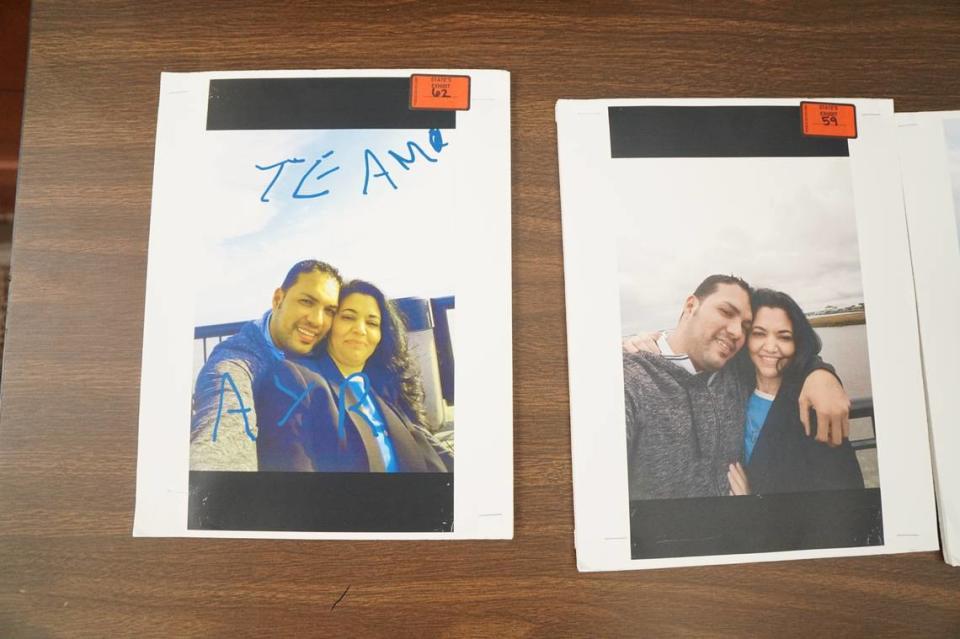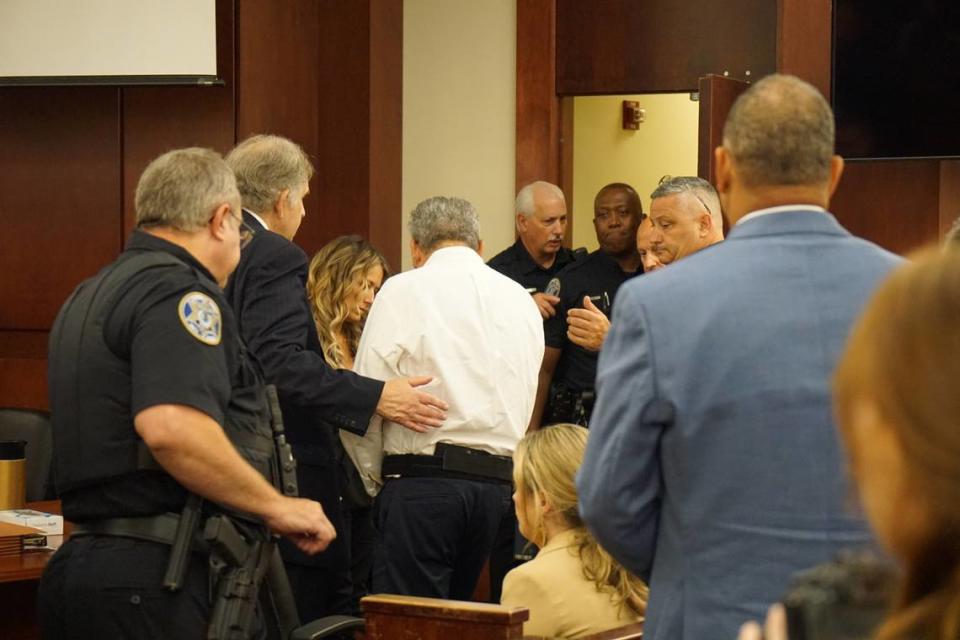Greg Leon prosecutor reflects on ‘solemn obligation,’ verdict in Valentine’s Day murder
Compared to Greg Leon, Arturo Bravo Santos was a mystery.
For three weeks, more than a dozen supporters accompanied restaurateur Greg Leon to court as he faced charges for murdering his wife’s lover on Valentine’s Day in 2016. They filled the benches behind where Leon sat at the defense table. Some arrived early every day before the courtroom opened.
Family and friends, among them a prominent attorney and a former town councilman, pleaded with circuit court judge Walton J. McLeod, IV, after the guilty verdict to take mercy on the businessman, who founded the popular chain of nine San Jose Mexican restaurants.
But through it all, there was no one in court for the victim, Bravo Santos.
Leon is a well known restaurant owner, University of South Carolina booster who threw famous football tailgates and once helped federal prosecutors prosecute a sheriff for bribery. But even after Leon’s trial, prosecutors and the public know little about Bravo Santos, a 28-year-old undocumented construction worker.
“We don’t want to judge the value of a human based on whether they’re well known or not,” 11th Circuit Solicitor Rick Hubbard, who prosecuted the case, told The State on Friday.
When first responders arrived at the crime scene, where they found Bravo Santos dead and naked on the ground of a parking lot, his name was thought to be Arnulfo Gil Liles. It was the name found on a Mexican consular ID inside of the truck.
His real name was unknown until family members brought investigators his passport, said lead police investigator Marc Miramontes, who testified that it was not unusual for undocumented immigrants to have fraudulent IDs.
Over seven days of testimony, there was little more evidence to fill in the missing details of Bravo Santos’ life. His family was not in court during the trial, and Hubbard said prosecutors only had sporadic contact with them through an intermediary. On Friday, Hubbard said his office was still trying to get in touch with family members to tell them about the verdict.
Bravo Santos was described as happy and always singing by his former roommate and lover, Ruby Sierra. He worked as a dry wall installer. His Facebook page shows pictures of sport motorcycles and race horses. He had and no criminal history other than a traffic violation and presenting false identification, Hubbard said.

While they didn’t know each other, Leon testified that he remembered meeting Bravo Santos at one of restaurants, which they turned into a salsa bar on Saturday nights. On one occasion, Bravo Santos had asked to take a picture with Leon. On another, Leon said he’d kicked the younger man out because he was “feuding” with another man.
Defense attorney Jack Swerling accused Bravo Santos of being a “gigolo” and “predator” who seduced Leon’s wife, Rachel, for her money and brought about his own death when he “invaded” Leon’s family.
In her testimony, Sierra admitted that Bravo Santos had many girlfriends, some of whom she says willingly gave him gifts, and had once dated a 17-year-old.
But questions about Bravo Santos’ immigration status and his other relationships were irrelevant, when considering a solicitor’s duty to prosecute a murder, Hubbard said.
“We always feel that it’s a solemn obligation that we have to go forward on a case no matter who it was... the fact that they’re a human being is enough,” Hubbard said.
Road to a verdict
When the guilty verdict came, Swerling, a legendary South Carolina criminal defense attorney who once defended serial killer Pee Wee Gaskins, remembered his shock.
“I was disappointed. We were fighting for self defense, and I certainly didn’t think that it would ever come back as murder. I thought that maybe we might be looking at voluntary manslaughter, a heat of passion killing, but the jury believed that it was malice. I’ve just been trying to figure it out,” Swerling told The State Friday.
On the other side of the courtroom, Hubbard, a veteran solicitor who prosecuted child murder Tim Jones, said he felt relief after a “frustratingly long” process.

Leon’s case took seven years to come to trial and then stretched to almost three weeks after a pathologist changed her testimony on the stand — leading to a three-day recess and a mistrial motion from defense attorneys.
In the first week of trial, the defense’s case was thrown into turmoil when the state’s pathologist, Dr. Janice Ross, took the stand and reversed her earlier finding from Bravo Santos’ autopsy that he appeared to be reaching with his right arm at the time of the shooting.
“That was a curve ball,” Swerling told The State. Until Ross took the witness stand, Swerling said they believed Ross’ testimony would support Leon’s claim of self defense.
But Ross said she noticed bruising on the inside of Bravo Santos’ right arm, indicating that the arm was down when he was killed. Hubbard said Ross had only told him about her new findings minutes prior to testifying.
Hubbard expressed his gratitude for the seven women and five men who served as jurors who had to wade through the highly technical analysis of bullet trajectories and body positions inside of the car.
“We had a jury that paid very close attention,” Hubbard said.
What’s next?
Asked if he was planning to file an appeal, Swerling replied “We’re going to do it, I’ll tell you that. What’s going to happen to it is up to people with a higher pay grade.”
After nearly seven years on supervised release, Leon was taken into custody at the Lexington County Detention Center on Thursday night.
On Friday morning, he was transferred to the South Carolina Department of Corrections, said spokesperson Chrysti Shain. He will spend the first 45 days of his 30 year sentence in Kirkland Correctional Institution undergoing evaluation before he is assigned to a permanent facility, Shain said.


